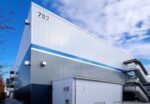South Korea’s Green New Deal shows the world what a smart economic recovery looks like
As the Covid-19 pandemic devastates the global economy, there’s an opportunity for governments to support a green-led recovery. This involves spending fiscal stimulus on renewable energy and other clean technologies to create jobs while addressing climate change. The chorus calling for such a move is strong and diverse: banks, investors, academics, energy companies, climate advocates and politicians. Unfortunately, some national governments have not heeded the calls. This includes Australia, where the Morrison government is spruiking a “gas-led recovery” and talking up fossil fuel-derived hydrogen. At the same time, our government is refusing to extend the renewable energy target beyond 2020, and there are strong signs it wants to change the investment mandates of Australia’s clean energy agencies to encourage funding of gas projects. However some countries, such as South Korea, are using the crisis to kickstart environmentally sustainable economic growth. Australia can learn a lot from the smart strategy of our Asian neighbour. Rising from a COVID battering South Korea’s economy, like those across the world, has been hit hard by the pandemic. In particular, its export industries dropped by 24% in May as demand for the nation’s mainstay products, such as cars, semiconductors, machinery, petrochemicals and steel, fell away. In April, 26.93 million Koreans were reportedly employed – 392,000 fewer than a year earlier. Job losses were highest in the wholesale and retail sectors, accommodation and food services. In response, Korean President Moon Jae-in in July launched the Korean New Deal or “K-New Deal”. The US$135 billion investment in green and digital technology comprises: US$96.3 billion from Treasury US$21.2 billion from local governments US$17.3 billion from the private sector. The “green” part of the plan is known as the Green New Deal (not to be confused with the US’ proposed package of climate policies, of the same name). The Korean green plan involves US$61.9 billion targeting the creation of 319,000 jobs by 2022 and 659,000 by […]










